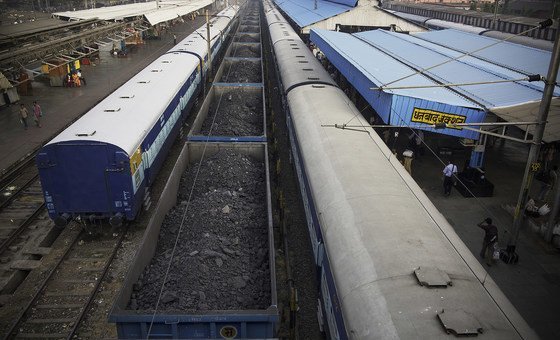Passenger trains wait for people to board at the Dhanbad Junction railway station in Jharkhand, northern India. One of the busiest in the region, millions of people pass through this station every year.
The UN Secretary-General has expressed his deep sadness over the loss of life and injuries sustained during India’s worst rail disaster this century, when three trains collided in the eastern state of Odisha on Friday.
Latest news reports said the death toll now stands at 275. More than 1,000 people were hospitalised but close to 800 of those involved in the crash have reportedly been discharged.
According to reports, railway officials and India’s minister in charge of the vast network, said on Sunday that a signal fault was the likely cause, which led to a routing error. One of the passenger trains collided with a stationary goods train causing carriages to derail, which in turn struck a second train going in the opposite direction.
In a statement issued on Saturday issued by his Spokesperson, António Guterres, extended his deep condolences to the families of the victims, “as well as the people and Government of India.”
He also wished a swift and full recovery to those injured.
Heartfelt condolences
The UN in India also tweeted heartfelt condolences, adding “our thoughts are prayers are with all affected.”
Around 2,000 people were believed to be travelling on the trains. Dozens of the dead have yet to be identified with some relatives still searching for loved ones.
Rescue work was completed on Saturday and work continues to clear the wreckage. A major investigation is underway into the cause of the disaster.
Preliminary findings suggest that both passenger trains had approached a district station in Balasore having been given a green signal.
India has one of the largest rail networks in the world. The worst rail disaster in its history took place in 1981, when an overcrowded train was blown into a river during a cyclone in Bihar state, killing around 800 people.

